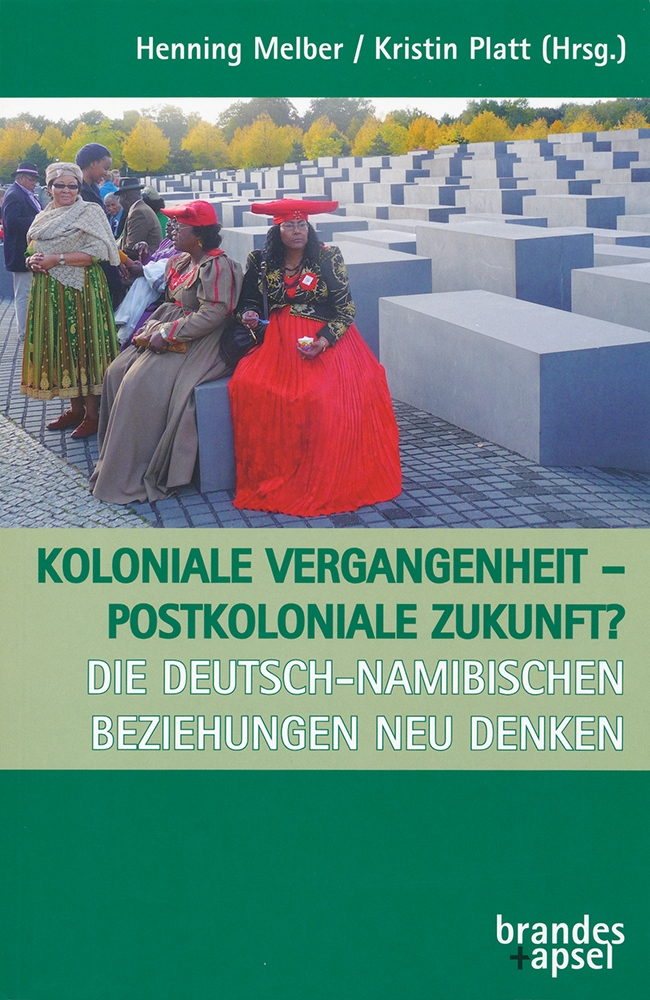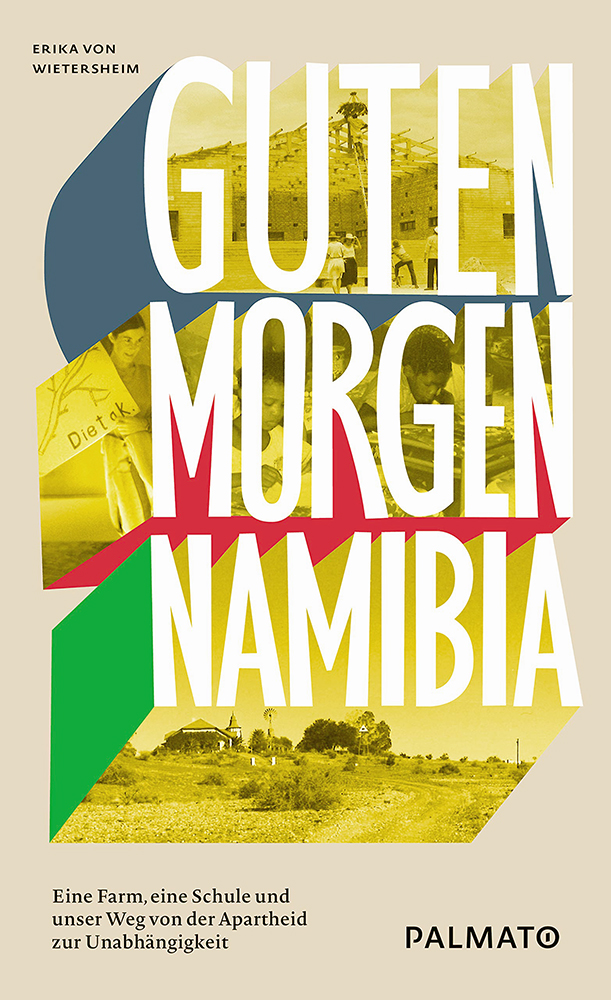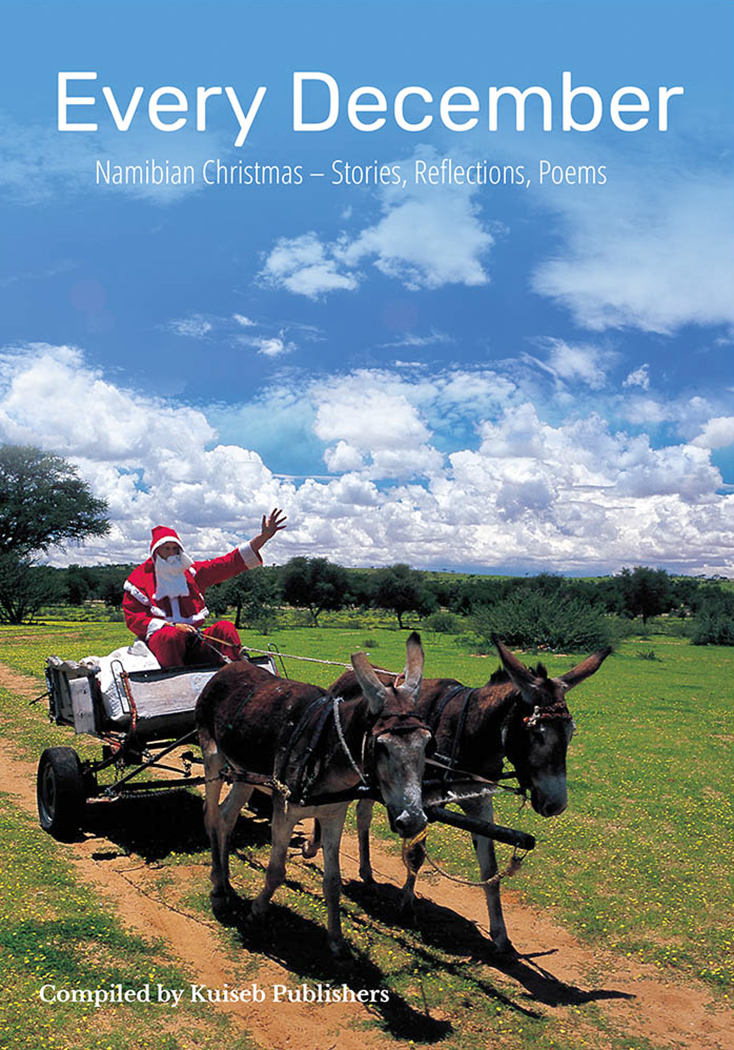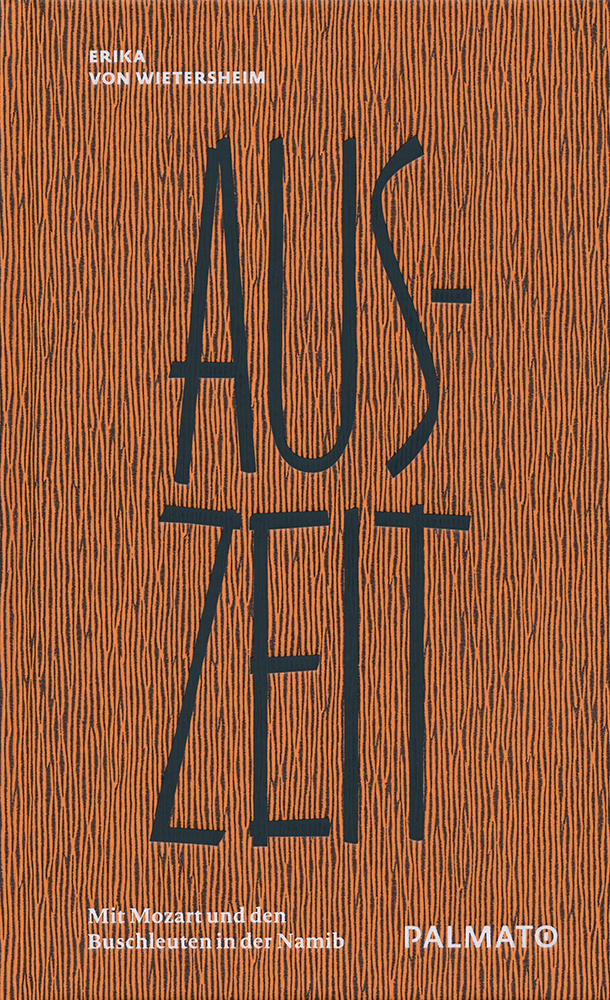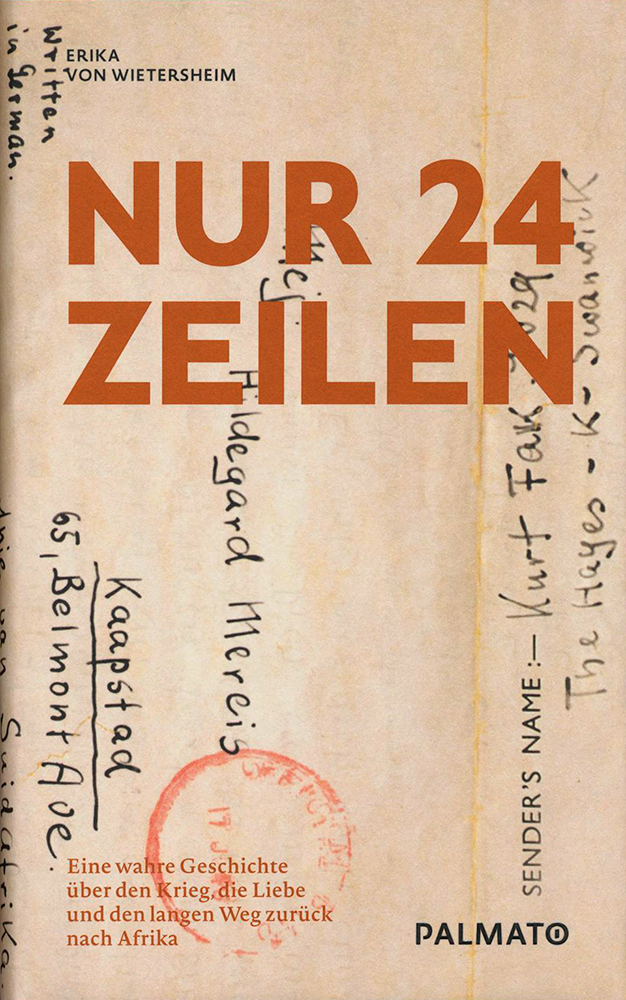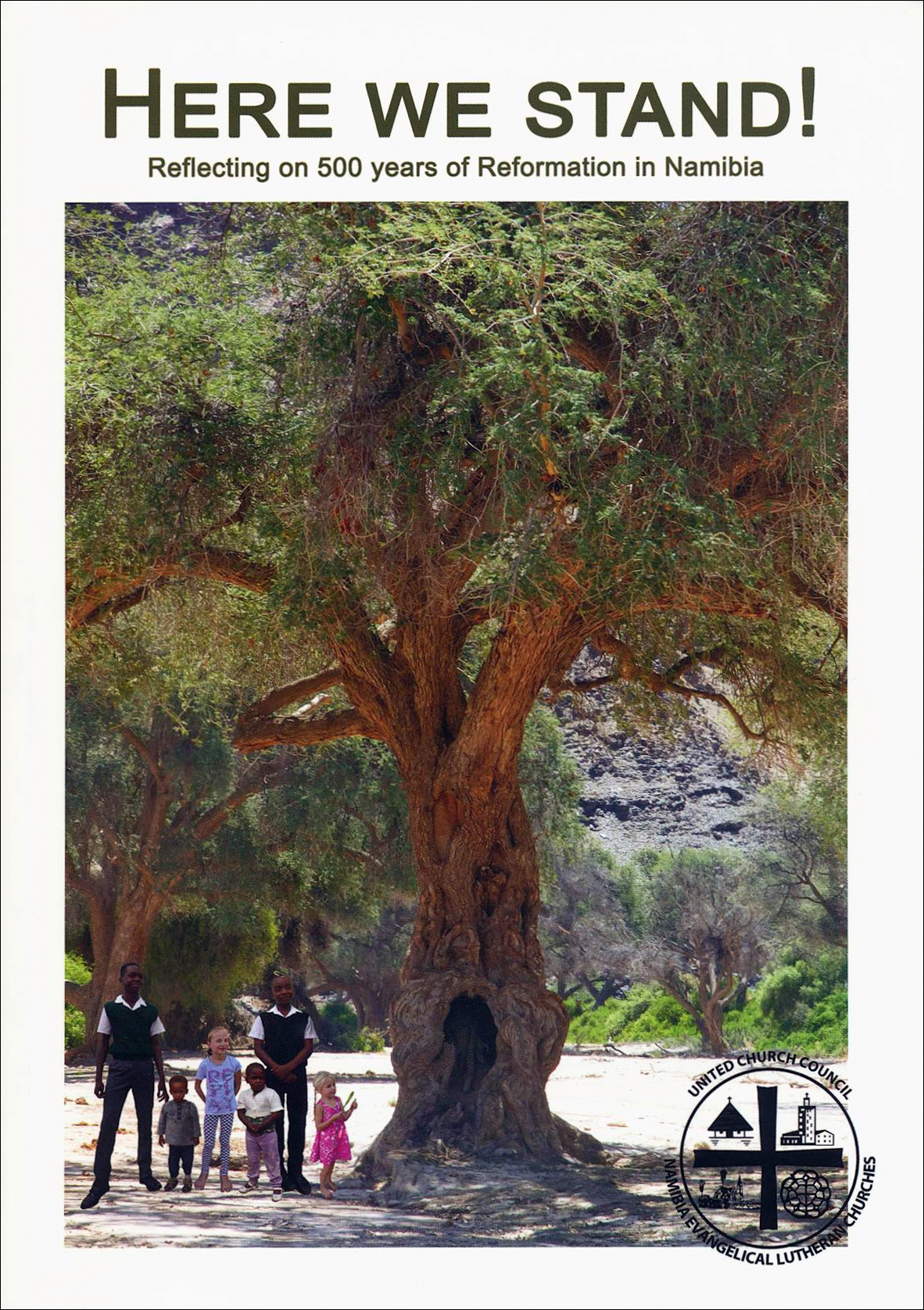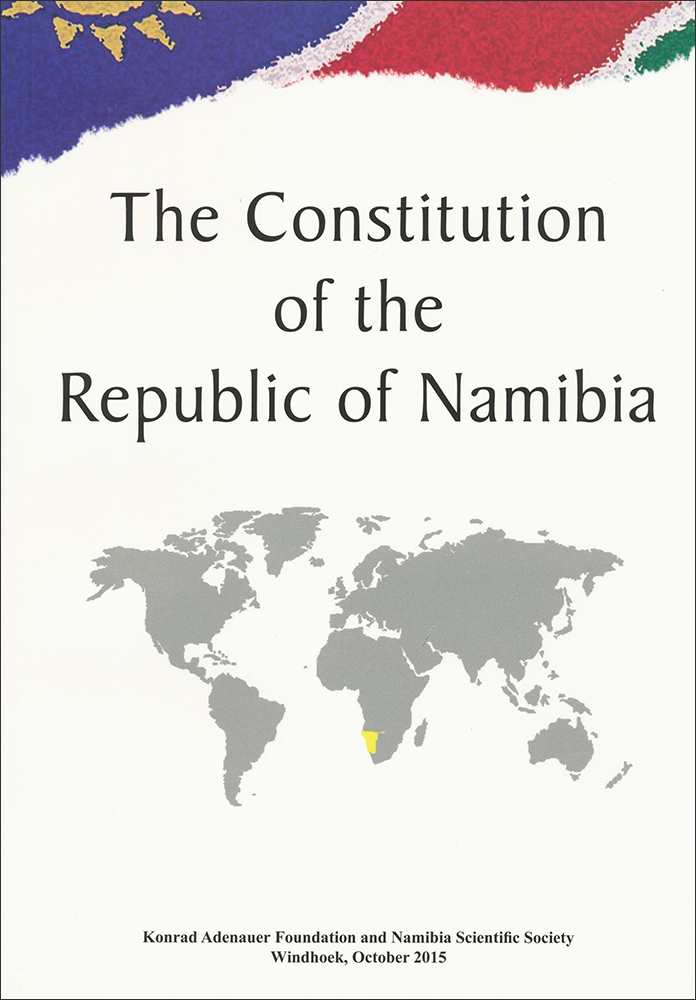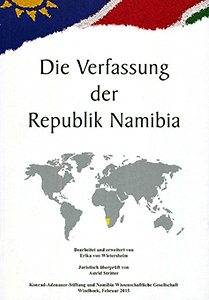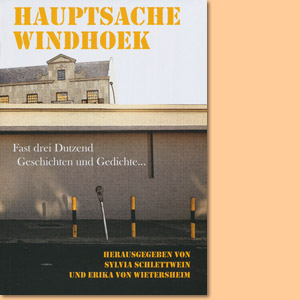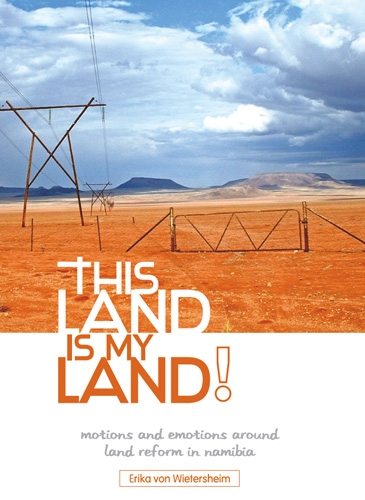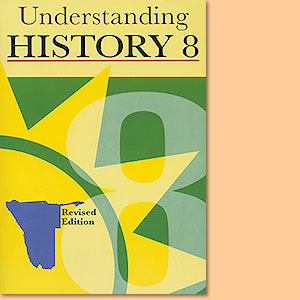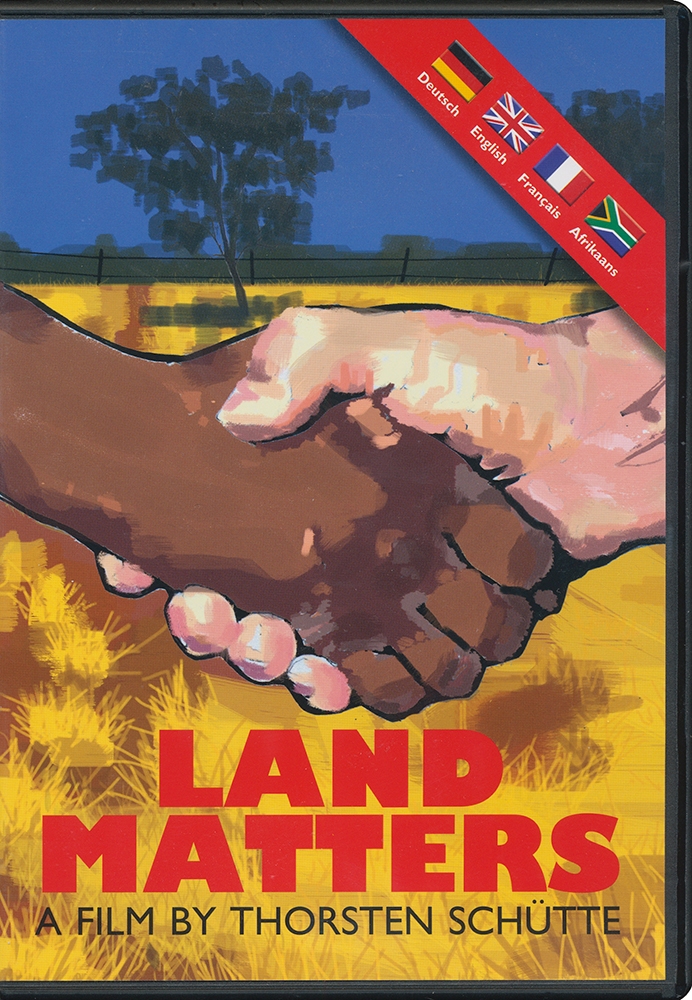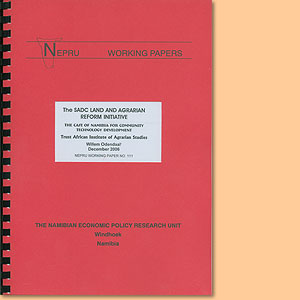This land is my land! Motions and emotions around land reform in Namibia. Table of content, von Erika von Wietersheim
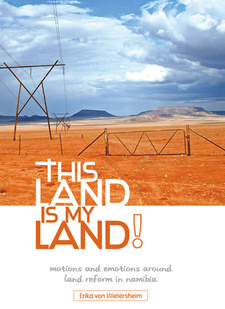
This land is my land! Motions and emotions around land reform in Namibia. Table of content, von Erika von Wietersheim.
This land is my land does not claim to be based on empirical methods and criteria of research. I conducted this study as a journalist, and I observed and interpreted realities with the eyes of a journalist.
My selection of interview partners, stories and opinions have been partly subjective and partly the result of good luck. And yet I have strived for a meaningful investigation, by selecting a broad spectrum of affected people and interest groups, and incorporating the relevant literature. My sincere hope is that by exposing some of the emotions around land reform, this study can add to the knowledge about our country, its people and the factors playing a role in the land reform process. A selection of shortened interviews which I conducted with more than 50 people forms the second part of this book. Four interviews are in German and have not been translated into English, but are preceded by an English summary. The interviews that were conducted in Afrikaans have all been translated into English.
Contents: This land is my land! Motions and emotions around land reform in Namibia
Preface
PART 1: THIS LAND IS MY LAND!
"For sure there are strong feelings": This study: why and how
"I am the owner of this farm"
Land inside out
Stories instead of interviews
5,000 kilometres and 50 interviews
Nomenclature and bias
Land reform so far - Leaving the past behind
The heritage of the past
Too much or too little history?
The two instruments of land reform
"We had animals, money and experience" - A model resettlement farm
"We all have one aim - and that is farming" - A model affirmative action farm
Land reform so far
Wounded by the past - Collective memory and 'struggle think'
The prime emotion
Double dispossession
Impressions of an artist
A hundred years of violence
"Because of the struggle"
The inflation of the meaning of land
'Struggle think' and collective emotions
The yearning for ancestral land - Arguing with history
"We got democracy, but not the land"
Shattered hopes
Cattle, land and identity
Cattle and the humanness of a person
Land and ancestral graves
Symbolic occupation of land
German farmers on ancestral land
Attempts to understand
The logic of land rights
An end to tribal policies
White wounds and fears - A hundred years of gain and loss
Victims of changing politics
The first land reform in Namibia
Not another Zimbabwe!
The fear of loosing one's 'Heimat'
Living in uncertainty
Coming to terms with expropriation
Trust in the government
Learning from the Zimbabwean experience
The fears of farm workers - Losers on all fronts
Content with a life without alternatives
A fear with a difference
Farm workers and land reform
The sensitive topic of nepotism
Moving beyond the black and white divide - Understanding and healing
Exactly the same feelings
And the other way round?
Acknowledgement and gratitude
Who is healing the wounds?
Healing at the grassroots
Why do people really want land? - Apparent and hidden motivations
The traditional meaning of land
New economy, old emotions
'Owning a farm can be a nightmare!'
From the political to the economic
'We cannot all be farmers'
The creation of new emotions
What people said
and what I found
A sense of belonging
'Why I really want a farm'
A home for many people
'Then I know this is my place'
Different connections: From communal support to individual responsibility
The reality on the ground
Communal versus individual ownership of land
This land is my land!
Consequences for land reform
Many voices but we all speak one language
Which stories to tell: Some answers to many questions
Wounds of the past and fears of the present
Why people want land
Farmers and their relation with land
PART 2: INTERVIEWS
Interview 1: "I would say, let us review this"
Prime Minister Nahas Angula
Interview 2: "Owning a farm can be a nightmare"
Minister Dr Nickey lyambo, Minister of Agriculture, Water Affairs and Forestry
Interview 3: "All citizens should have a living space"
Minister Willem Konjore, Minister of Environment and Tourism
Interview 4: "We urgently need clear guidelines"
Mr Harald Koch, Acting Director of Rural Water Supply: Ministry of Agriculture and Forestry
Interview 5: "The slowness of land reform is a blessing in disguise"
Mr Vehaka Tjimune, Executive Director: Namibian National Farmers Union
Interview 6: "Land reform is basically a class issue"
Mr Alfred Angula, General Secretary: Namibia Farm Workers' Union
Interview 7: "We all speak the same language and that is farming"
Mr Solomon Tjipura: Chairman: Namibia Emerging Commercial Farmers' Union
Interview 8: "Land hunger will never stop"
Mr Sakkie Coetzee, Executive Manager: Namibia Agricultural Union
Interview 9: "There is a perception that land expropriation is mainly targeting foreigners"
Ms Ute König, Deputy Head of Mission: German Embassy in Namibia
Interview 10: "Our new government is just doing damage control of what was done during colonialism"
Bishop Zephania Kameeta, Evangelical Lutheran Church in Namibia
Interview 11: "If land reform is abused for political gain, a catastrophe like in Zimbabwe is inevitable"
Reverend Schalk Pienaar, Moderator of the Synod of the Dutch Reformed Church
Interview 12: "Farming is good, but we need a lot of money in order to be productive"
Mr Andreas Amushila, affirmative action farmer
Interview 13: "I paid the government for this farm, and this feels good"
Ms Thekla Kahiru, affirmative action farmer
Interview 14: "We do not regret a thing"
Ms Rachel Cinana, resettlement farmer
Interview 15: "Here I am happy and free"
Mrs Maria Witbooi, resettlement farmer
Interview 16: "Our aim is farming - it is just that we need more land"
Mr Ronald Kazaruia, resettlement farmer
Interview 17: "We would like a farm of our own; this place belongs to the government"
Mr and Mrs Vries: resettlement farmers
Interview 18: "I have good work, but I do not have a home"
Mr David Kheiseb, farm worker
Interview 19: "Farm workers could perhaps get a little piece of land"
Ms Selma Tiboth, farm worker
Interview 20: "With independence we got self-governance but not the land"
Mr Usiel Kandjii, communal farmer and community activist
Interview 21 : „Jeder Tag, den wir hier friedlich leben können, ist ein gewonnener Tag" ("Every peaceful day is a good day")
Mr Gerd Wölbung, commercial farmer
Interview 22: "For the Herero, no value is attached to land, value is attached to cattle"
Mr Assaph Kandjeo, farmer and pastor
Interview 23: „Ich vertraue auf die Rechtssicherheit, die ich diesem Staat genieße" ("I trust that the Namibian government will keep to law and order")
Mr Harry Schneider-Waterberg, commercial farmer
Interview 24: "Cattle are of utmost importance for Herero people"
Mr Ueriuka Festus Tjikuua, community activist, communal farmer and civil servant
Interview 25: „Wir suchen nach neuen Modellen für eine Farmgemeinschaft"
("We are thinking about a new kind of farm community")
Mr Ulf-Dieter und Ms Christine Voigts, commercial farmers
Interview 26: „Ich reagiere aggressiv und emotional auf jede Verletzung dieses Stück Landes" ("I react aggressively and emotionally to any violation of my land")
Mr Guido von Wietersheim, commercial farmer
Interview 27: "Land Reform: An opportunity for a 'winners' all' situation"
Mr Reimer Thiessen, commercial farmer
Interview 28: "Für mich ist nicht der Farmbesitz wichtig, sondern das Leben auf der Farm" ("For me, to be able to live on a farm is more important than owning a farm")
Mr Markus Berner, commercial farmer
Map of Namibia
This is the table of content from the book: This land is my land! Motions and emotions around land reform in Namibia, von Erika von Wietersheim.
Book title: This land is my land!
Subtitle: Motions and emotions around land reform in Namibia
Author: Erika von Wietersheim
Publisher: Friedrich-Ebert-Stiftung, Namibia Office
Namibia; Windhoek, 2008
ISBN 978-99916-820-5-1
Softcover, 15x21 cm, 260 pages, numerous black and white photographs, English
von Wietersheim, Erika im Namibiana-Buchangebot
Koloniale Vergangenheit – Postkoloniale Zukunft? Die deutsch-namibischen Beziehungen neu denken
Koloniale Vergangenheit – Postkoloniale Zukunft? Die deutsch-namibischen Beziehungen neu denken. Beiträge zur Komplexität von Erinnerungskultur, Verantwortungsübernahme und gesellschaftlichen Ungleichheiten.
Guten Morgen, Namibia!
Guten Morgen, Namibia: Erinnerungen an Farm Gras, die Schulzeit und den Weg von der Apartheid zur Unabhängigkeit Namibias.
Every December. Namibian Christmas: Stories, Reflections, Poems
Many Namibian authors have contributed to the book Every December. Namibian Christmas: Stories, Reflections, Poems.
Aus-Zeit: Mit Mozart und den Buschleuten in der Namib
Aus-Zeit: Mit Mozart und den Buschleuten in der Namib ist ein Bericht einer örtlich begrenzten Reise in Namibia und zu sich selbst.
Nur 24 Zeilen. Eine wahre Geschichte über den Krieg, die Liebe und den langen Weg zurück nach Afrika
Eine wahre Geschichte über den Krieg, die Liebe und den langen Weg zurück nach Afrika: 'Nur 24 Zeilen' ist ein biographisches Buch über Familienbeziehungen zu Zeiten Südwestafrikas und Namibias.
Here we stand. Reflecting on 500 years of Reformation in Namibia
Here we stand: Reflecting on 500 years of Reformation in Namibia includes articles by Namibian bishops, theologians, pastors, academics and lay members of the Lutheran community.
The Constitution of the Republic of Namibia
The Constitution of the Republic of Namibia including all Amendments, Namibian and African Union anthems, Namibian flags and seals, Resolution 435 Members of the Constituent Assembly 1982, and Constitutional Principles.
Die Verfassung der Republik Namibia
Dies ist die erweiterte Auflage (2015) der Verfassung der Republik Namibia in deutscher Sprache.
The agony of truth. Autobiography of Samson Ndeikwila
The Agony of Truth is Samson Ndeikwila's autobiography on SWAPO's ugly hidden secrets of unexplained deaths, disappearances, unjustified imprisonment, torture and accusations during the struggle for power in Namibia.
Hauptsache Windhoek
Die Sammlung Hauptsache Windhoek enthält drei Dutzend Geschichten und Gedichte über die Hauptstadt Namibias.
This land is my land! Motions and emotions around land reform in Namibia
This land is my land looks at what land reform in Namibia is all about and where motions and emotion have their origins.
Understanding History - Grade 8 Revised edition
Understanding History - Grade 8 Revised edition - includes all historical topics contained in the Current Junior Secondary History syllabus.
Weitere Buchempfehlungen
Land Matters. Strategien als Reaktion auf Auswirkung der Landreform in Namibia
Wie Farmer in Namibia Strategien als Reaktion auf Auswirkung der Landreform entwickeln und ihre Gedanken darüber zeigt der Film Land Matters.
The SADC Land and Agrarian Reform Initiative. The case of Namibia
Willem Odendaal works in the Legal Assistance Centre on the Land, Environment and Development Project

